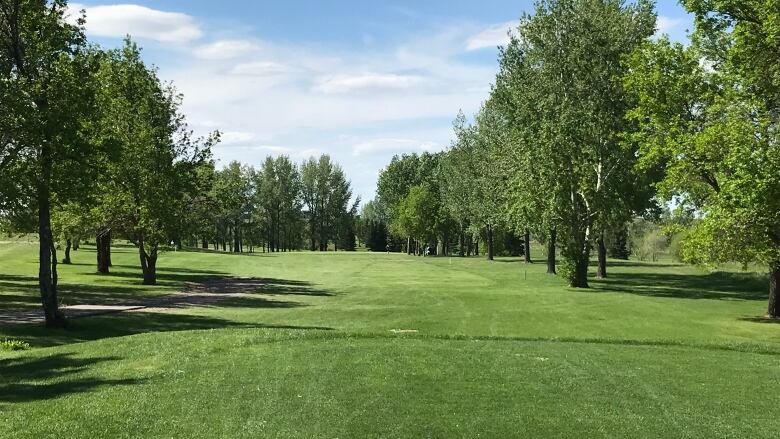What you need to know about COVID-19 in Alberta on Friday, May 1
Province will reopen slowly with provincial parks today, golf courses on Saturday

The latest:
- Alberta reported three more deathsall residents ofcontinuing care homes and 218 newcases.
- Alberta's Chief Medical Officer of Health announced the launch of ABTraceTogether, a mobile tracing app that she says can help slow the spread of COVID-19.
- Alberta has announced an outbreak of COVID-19 at the Amazon warehouse in Balzac, with five cases reported.
- The union representing workers at the Cargill meat-processing plant near High River has taken legal action to try and stop that facility from reopening on Monday.
- Dogs in Edmonton will be allowed to roam off-leash in designated parks once again.
- Calgary says its golf courses won't reopen this weekend despite the provincial plan.
- Rural drive-in theatres can reopen, but with conditions.
- An outbreak at a southwest Calgary care home has claimed a second life.
What you need to know today in Alberta:
Provincial parks will open starting today with reduced services, while golf courses will reopen on Saturday and some non-urgent surgeries and the offices of dentists, physiotherapists, speech and respiratory therapists, social workers and dietitians will reopen on Monday.
It's part of a tiered relaunch strategy announced by the province on Thursday afternoon that is contingent on Albertans' continued caution and holding the virus in check.
Watch: COVID-19: is airborne transmission possible?
More businesses, including some bars and cafes, could reopen as soon as May 14.
Another business set to reopen is the Cargillmeat-processingplant north of High River, site of Canada's largest outbreak. That's being met with anger fromthe Alberta Federation of Labour.
On Friday, Alberta reported three more deaths and 218 new cases of COVID-19.
The regional breakdown of the cases as of Friday was:
- Calgary zone: 3,708.
- South zone: 1,033.
- Edmonton zone: 498.
- North zone: 215.
- Central zone: 87.
- Unknown: 32.
As of Friday, 145,420 people have been tested for COVID-19 in Alberta.
What you need to know today in Canada:
Some Canadians have gone weeks without pay after losing their jobs but are unable to access federal benefits. With their EI benefits in limbo, many have been unable to get answers from an overwhelmed call system.
Meanwhile, some Canadians have lost money in another way, with COVID-19 scams syphoning at least $1.2 million in recent weeks.
Watch: How to physical distance in tricky situations
As of 7:30p.m. ET on Friday, Canada had 55,061 confirmed and presumptive coronavirus cases, with the majority concentrated in Ontario and Quebec.
Provinces and territories list 22,762 of the cases as resolved or recovered. A CBC News tally of COVID-19-related deaths based on provincial data, regional health information and CBC's reporting lists 3,507 deaths in Canada and two known coronavirus-related deaths of Canadians abroad.
Self-assessment and supports:
Alberta Health Services has an online self-assessment tool that you can use to determine if you have symptoms of COVID-19.
The province says Albertans who have returned to Canada from other countries must self-isolate. Unless your situation is critical and requires a call to 911, Albertans are advised to call Health Link at 811 before visiting a physician, hospital or other health-care facility.
If you have symptoms, even mild, you are to self-isolate for 10 days from the onset of symptoms.
You can find Alberta Health Services' latest coronavirus updates here.
The province also operates a confidential mental health support line at 1-877-303-2642 and addiction help line at 1-866-332-2322, available from 7 a.m. to 11 p.m., seven days a week.
Online resources are available for advice on handling stressful situations and ways to talk with children.
There is a 24-hour family violence information line at 310-1818 to get anonymous help in more than 170 languages, and Alberta's One Line for Sexual Violence is available at 1-866-403-8000, from 9 a.m. to 9 p.m.














_(720p).jpg)


 OFFICIAL HD MUSIC VIDEO.jpg)
.jpg)



























































































